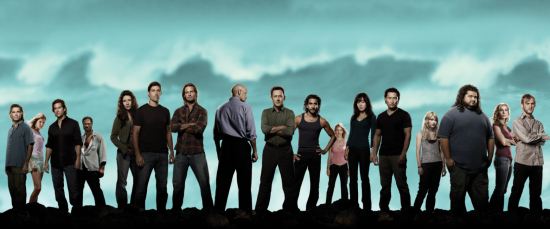Earlier this week, my family and I had just sat down to dinner and were discussing season finales of TV shows. Although none of us have ever watched the show, the “Game of Thrones” finale was definitely in the news this week, which started the conversation, and shows like “Arrow” and “The Flash” also ended their current seasons recently. This led to discussions of which shows had good series finales and which ones had poor series finales.
One of the first finales that was brought up was “Lost.” Most of my family likes the “Lost” finale, but as we were discussing critical reception to it, we saw how divisive it was. It was then that I came to the realization that many people didn’t like it because they didn’t understand the ending–and that they didn’t understand it because they were overthinking it. They thought this minor detail or that minor detail were plot holes, just because they weren’t spoon fed the answer.
This led the conversation toward a discussion about how audiences feel the need for their fiction to be spoon fed to them. Many people do not like stories to conclude with open-ended questions. The problem with this is, if they’re spoon fed every answer, then there’s no room for creative thinking. As long as the major plot points are resolved, leaving a few thought-provoking questions in the reader/viewer’s mind isn’t necessarily a bad thing, because it lets them think.
“Lost” was never a show where you could turn your brain off while watching. From the beginning, it snared the viewer with mystery and questions, urging them to think about the meaning behind things, sometimes leaving questions unanswered for three to four seasons before finally resolving them. It only makes sense that a show like that would have an ending that provoked even more questions.
Another example of this is the movie “2001: A Space Odyssey.” I saw it for the first time in my film appreciation class in college, and while I had no idea what was going on at the end of the movie, I still enjoyed it. It makes you come to your own conclusions about what just happened. A similar, but much smaller-scale, example is “The Polar Express.” We are never given an explanation about who the “Hitchhiker” is. A ghost? An angel? Something else entirely? It’s really up to the viewer to decide.
But in recent years, it’s becoming more and more prevalent that anything not explained is considered a “plot hole.” A great example is “Avengers: Endgame,” which was a very well-written movie, probably one of the best I’ve seen in years–yet still, some people will complain and pick apart the movie because a few minor details weren’t explained, even though said points can easily be filled in by the viewer’s mind with no trouble whatsoever.
Here is my challenge: if you’re a writer, leave some things for the readers to think about. You don’t have to spoon feed them every detail, every explanation, every backstory. Let them think, come to their own conclusions. As long as you’re resolving your story with a satisfactory ending, it’s okay to have question marks. It challenges the reader to think.
If you’re a consumer, don’t automatically assume that something is bad because you didn’t get an explanation. If a movie or book has a thought-provoking ending and you feel like you didn’t get all the answers, maybe it’s because the writer wanted you to think about what you just saw and come to conclusions. The best fiction is fiction that sticks with you long after you’ve finished it. It’s okay if you don’t immediately feel like all your questions have been answers. Take it as a challenge, formulate your own answers, see what other consumers like yourself think about it.
God has given us all the capacity to reason, to think creatively. Let’s use that as we consume our fiction, and not automatically assume that something is bad because the minutiae we were looking for aren’t there. It can make for a much more compelling journey.

I really enjoy reading a large variety of books. One of my favorites is by John Green- The Fault in our Stars. It has so many loose ends but I love it for that! This is a great thought. I can’t wait to read your book now because I know it will be on my level lol!
LikeLike